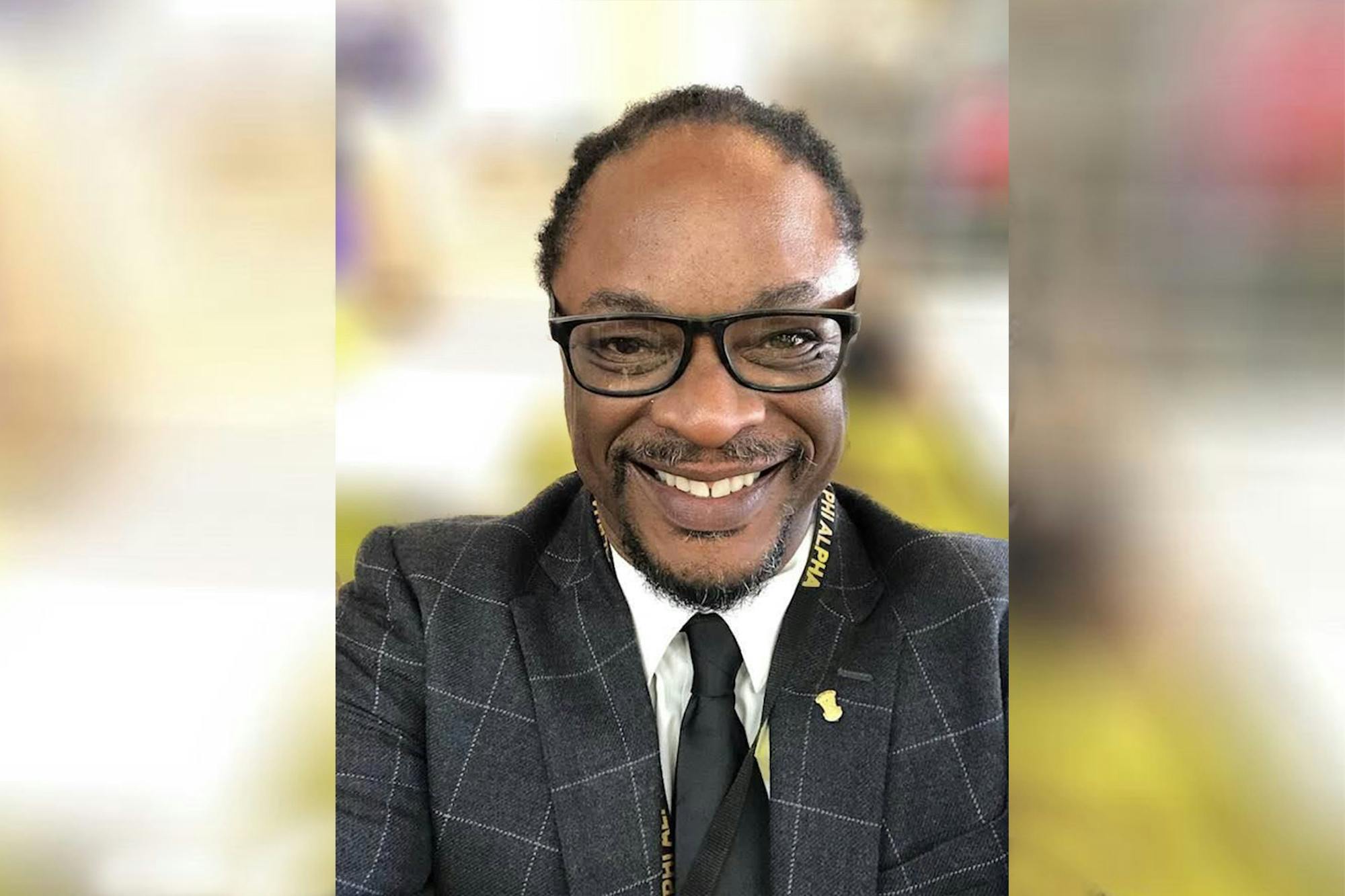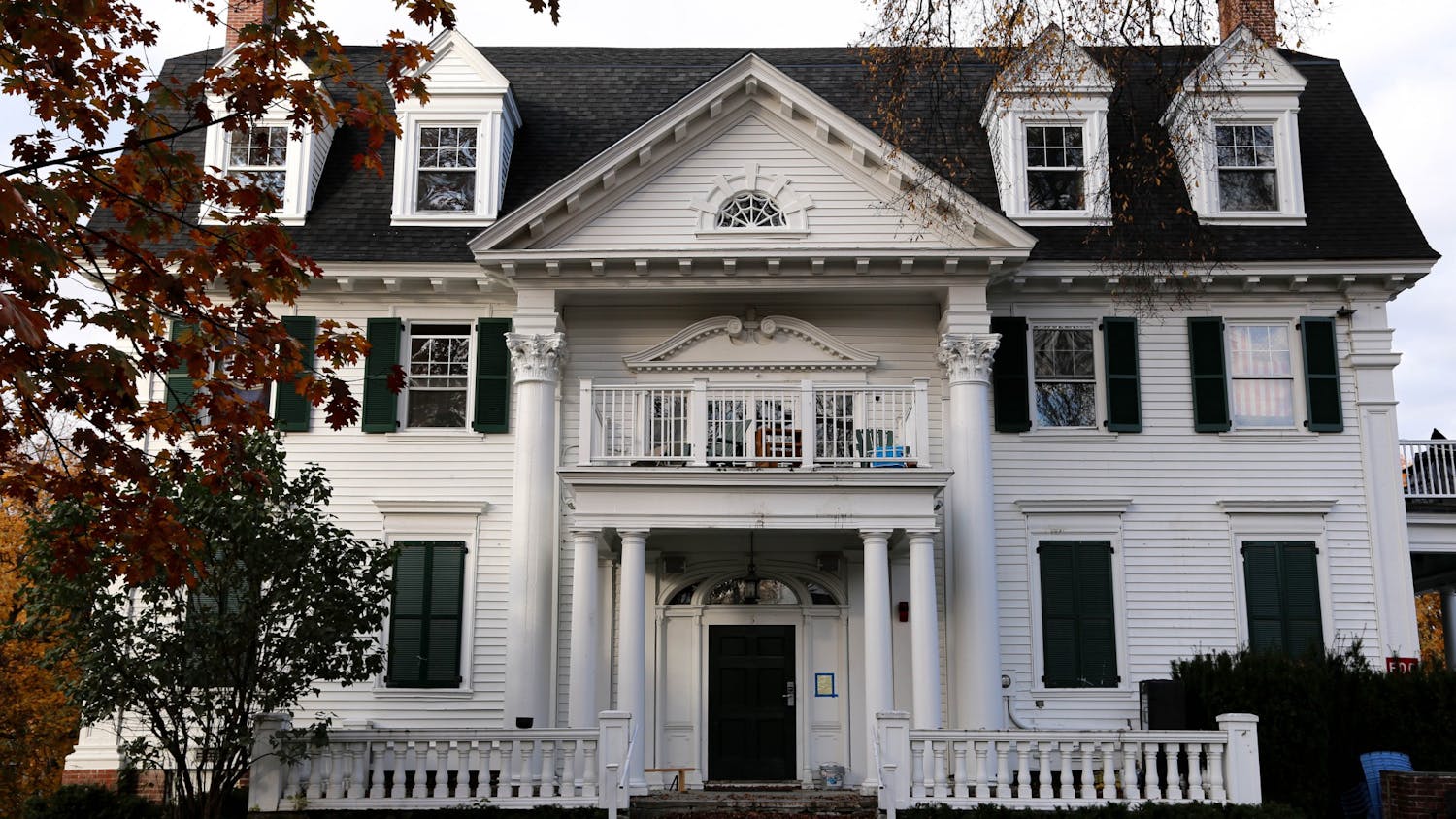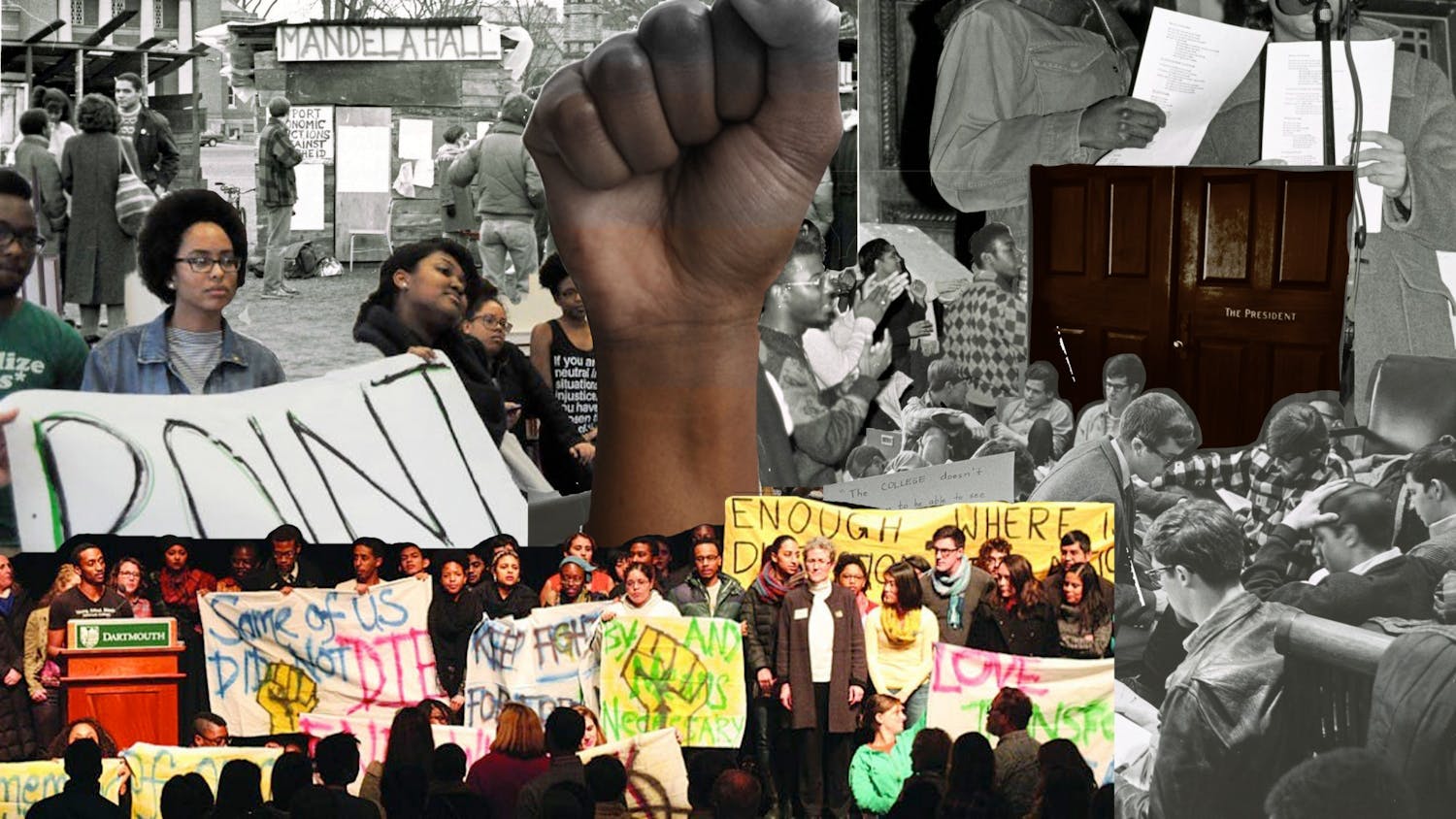Over 500 students and other attendees packed into a Zoom room Monday evening to hear author and lecturer Lawrence Ross explain the links between systemic racism and Greek life on college campuses.
“It’s not just about good people and bad people,” Ross said during the seminar, which he has given at over 200 colleges and universities. “You’ve got to deconstruct the systems. As my hero, Angela Davis, said, ‘Outbursts are not isolated. Racism is systemic.’”
Ross opened the talk, sponsored by the Inter-Sorority Council and the Greek Leadership Council, by recalling a 2015 incident at the University of Oklahoma, in which a video of white members of the school’s Sigma Alpha Epsilon fraternity chapter singing racist slurs led to the expulsion of students involved and the closure of the chapter. The video went viral, prompting national news coverage and investigations by SAE national.
Ross asked the 526-member audience to consider why such an event was met with shock: “How could two white 19-year-olds sing a song this racist?” he asked. He explained that people should recognize the incident as just one in the long history of racist incidents in Greek spaces and on college campuses, not an individual event attributable to alcohol or other outside factors.
Colleges and Greek spaces go through a three-step process to avoid grappling with racist incidents, he said: They individualize incidents by narrowing the focus to the individuals involved, minimize it by stating that it does not reflect the organization’s values and trivialize it by blaming external influences.
“It [doesn’t] matter if a racist incident occurred in the 1970s, the 1990s or 21st century — institutions and organizations all work in the exact same way,” Ross said.
He noted the tendency of what he called “race-averse” individuals — which he defined as white people, who often ignore and minimize issues of race due to the fact that they are not forced to confront race daily — on college campuses to minimize discussions of race. Additionally, he pointed to efforts to attack and reverse affirmative action policies and microaggressions like requesting to touch a Black student’s hair.
Ross cited surveys and studies throughout his seminar, including one that showed that college presidents tend to rank their own schools far better on issues of race than they rank other schools. Dean of the College and sociology professor Kathryn Lively, who attended the event, said afterward that the survey Ross cited coincides with a well-known phenomenon within sociology where people tend to trust their own organizations and personal contacts but doubt the integrity of others.
“People who are members of Greek organizations can often say, ‘Oh, that Greek organization is that way — ours isn’t like that,’” she said.
Blindness to issues within one’s own organizations, Lively said, occurs because people associate them with their own identity.
“No one wants to see themselves as being racist — no college president wants to see their college as being inhospitable to people of color,” she said. “What would it mean for President Hanlon if he was president of a racist college?”
Ross also said that addressing iconography — being willing to take down Confederate statues or rename buildings whose namesakes were racist — is critical to making campuses more welcoming places for students of color. He noted the removal of Baker-Berry Library’s weather vane, which depicted an image of a Native American many criticized as offensive, as progress.
“Symbols matter on college campuses, and they tell students of color whether or not you see them,” Ross said.
He then shifted his focus to Greek spaces in particular, listing descriptions of racist incidents at colleges across the country. Ross said that in recent years, the language around racist incidents has changed: Houses have generally moved from denying that a particular incident is any wider than the individuals involved to issuing “word salad” statements that include checklists of “things that make you sound like you’re saying something,” but accomplish little.
He said members should acknowledge the racist history of an organization that, for example, barred Black members from joining for decades.
“You’re not responsible for the racism that occurred in the past, but you’re damn sure responsible for understanding and knowing things about the racism that occurred in the past, and you’re damn sure responsible for all the racism that occurs from this point forward,” Ross said.
He panned calls for Greek system abolition as “cheap” ways of avoiding making real change, asking students to instead “deconstruct” racism in their student organizations and in public policy. In an interview after the event, Ross added that the “hard work” includes amplifying minority voices within a space and changing national organizations from the chapter level.
“[Abolition of the Greek system is] just not one of those things where I see it being productive, because you’re leaving students of color with the exact same issues — except you don’t have any Greek letters,” he said.
He added that within the Greek spaces, new member recruitment isn’t the right place to focus when it comes to promoting diversity and inclusion. Instead, he said, student leadership should focus on incorporating those values into every aspect of the house — including financing, alumni relations and social events — and recruitment should follow.
“When you integrate [diversity and inclusion] within your strategy, everything that you do will have a diversity, equity and inclusion focus with it,” Ross said. “… By the time you get to recruitment, those things will reflect.”
Sophie Kwon ’22, incoming president of Sigma Delta sorority, said that the event will help to inform the house’s conversations about diversity this term. The house is planning a “debrief” on Tuesday night, and one reform already being implemented is incorporating the house’s diversity and inclusion task force into the executive board.
“It was really helpful for me to hear about how you incorporate organizations within ours, such as the [diversity and inclusion] task force, into bringing about wider change,” Kwon said. “… I think he had really awesome ideas as to how Sigma Delt can do that.”
ISC programming and inclusivity chairs Ida Claude ’22, Katie Hoover ’22 and Dajee Provitt ’21 wrote in an email statement after the event that the lecture follows a number of initiatives the ISC has spearheaded this year, including an “intensive bias training” for all sororities ahead of winter rush and the establishment of a fund that houses can use for inclusivity-related events.
“Events like the one tonight should not be a ‘one off,’ and we will work to increase chapter participation for future events,” they wrote. “The oppression folks are facing is not optional and, to be quite frank, it is a privilege in itself to feel that one can ignore or skip out on issues of race.”
Kwon said she believes the talk will spur action from other houses on campus as well, not just her own.
“Events like this are what help that happen, especially because I hear attendance was really awesome,” she said. “It clearly has affected the ways we are going to engage in Greek life moving forward.”





